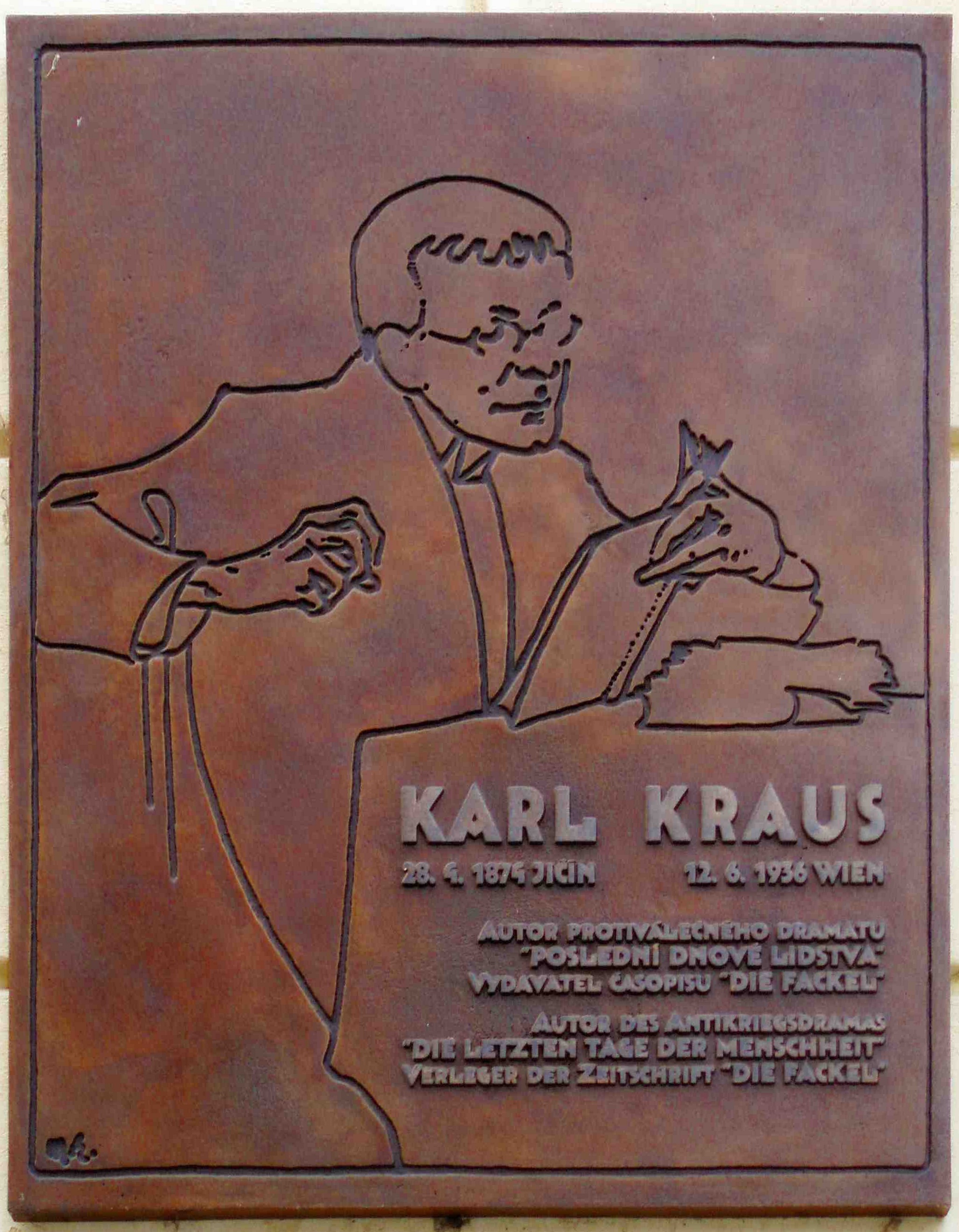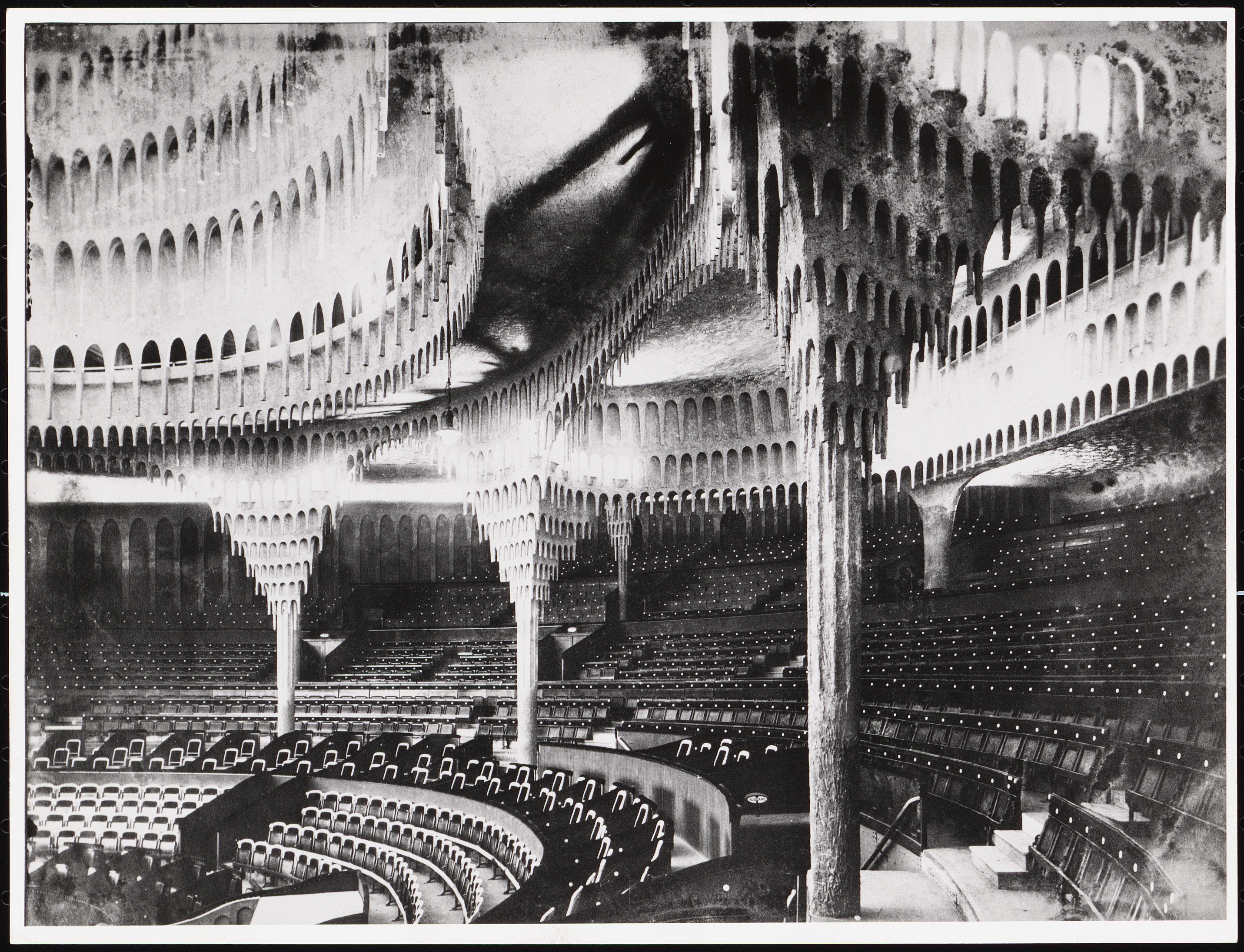|
Die Weltbühne
''Die Weltbühne'' (, ‘The World Stage’) was a German weekly magazine for politics, art and the economy. It was founded in Berlin in 1905 as (‘The Theater’) by Siegfried Jacobsohn and was originally a theater magazine only. In 1913 it began covering economic and political topics and for the next two decades was one of the leading periodicals of Germany’s political left. It was renamed to ''Die Weltbühne'' on 4 April 1918. After Jacobsohn's death in December 1926, leadership of the magazine passed to Kurt Tucholsky, who turned it over to Carl von Ossietzky in May of 1927. The Nazi Party banned the publication shortly after it came to power, and the magazine's last issue appeared on 7 March 1933. It continued from exile as (‘The New World Stage’) until 1939. After the end of World War II, it appeared again under its original name in East Berlin, where it survived until 1993. The magazines ''Ossietzky'' (since 1997) and ''Das Blättchen'' (‘The Leaflet’, 1998) h ... [...More Info...] [...Related Items...] OR: [Wikipedia] [Google] [Baidu] |
Robert Walser (writer)
Robert Walser (15 April 1878 – 25 December 1956) was a German language Swiss writer. He additionally worked as a copyist, an inventor's assistant, a butler, and in various other low-paying trades. Despite marginal early success in his literary career, the popularity of his work gradually diminished over the second and third decades of the 20th century, making it increasingly difficult for him to support himself through writing. He eventually had a nervous breakdown and spent the remainder of his life in sanatoriums. Life and work 1878–1897 Walser was born into a family with many children. His brother Karl Walser became a well-known stage designer and painter. Walser grew up in Biel, Switzerland, on the language border between the German- and French-speaking regions of Switzerland, and grew up speaking both languages. He attended primary school and progymnasium, which he had to leave before the final exam when his family could no longer bear the cost. From his early y ... [...More Info...] [...Related Items...] OR: [Wikipedia] [Google] [Baidu] |
Independent Social Democratic Party Of Germany
The Independent Social Democratic Party of Germany (, USPD) was a short-lived political party in Germany during the German Empire and the Weimar Republic. The organization was established in 1917 as the result of a split of anti-war members of the Social Democratic Party of Germany (SPD), from the left of the party as well as the centre and the right. The organization attempted to chart a course between electorally oriented reformism on the one hand and Bolshevik revolutionism on the other. After several splits and mergers, the last part of the organization was terminated in 1931 through merger with the Socialist Workers' Party of Germany (SAPD). Organizational history Formation On 21 December 1915, several SPD members in the Reichstag, the German parliament, voted against the authorization of further credits to finance World War I, an incident that emphasized existing tensions between the party's leadership and the pacifists surrounding Hugo Haase and ultimately led t ... [...More Info...] [...Related Items...] OR: [Wikipedia] [Google] [Baidu] |
Majority Social Democratic Party Of Germany
The Majority Social Democratic Party of Germany (German: , MSPD) was the name officially used by the Social Democratic Party of Germany (SPD) between April 1917 and September 1922. The name differentiated it from the Independent Social Democratic Party (, USPD), which split from the SPD as a result of the party majority's support of the government during the First World War. Governments led by the MSPD steered Germany through the German Revolution of 1918–1919 and the first years of the Weimar Republic. They followed a moderate course towards a parliamentary system and often used military force against the radical left groups that wanted a soviet style government. The MSPD introduced important social reforms such as the eight-hour workday and early forms of unemployment and health insurance. The party won more votes than any other in the first two national elections. The breakaway USPD was considerably weakened after the Spartacus League, its revolutionary wing, joined with oth ... [...More Info...] [...Related Items...] OR: [Wikipedia] [Google] [Baidu] |
German Spring Offensive
The German spring offensive, also known as ''Kaiserschlacht'' ("Kaiser's Battle") or the Ludendorff offensive, was a series of German Empire, German attacks along the Western Front (World War I), Western Front during the World War I, First World War, beginning on 21 March 1918. Following American entry into World War I, American entry into the war in April 1917, the Germans decided that their only remaining chance of victory was to defeat the Allies of World War I, Allies before the United States could ship soldiers across the Atlantic and fully deploy its resources. The Imperial German Army, German Army had gained a temporary advantage in numbers as nearly 50 Division (military), divisions had been freed by the Russian defeat and withdrawal from the war with the Treaty of Brest-Litovsk. There were four German offensives, codenamed ''Operation Michael, Michael'', ''Operation Georgette, Georgette'', ''Gneisenau'', and ''Blücher-Yorck''. ''Michael'' was the main attack, which wa ... [...More Info...] [...Related Items...] OR: [Wikipedia] [Google] [Baidu] |
Carl Von Ossietzky
Carl von Ossietzky (; 3 October 1889 – 4 May 1938) was a German journalist and Pacifism, pacifist. He was the recipient of the 1935 Nobel Peace Prize for his work in exposing the clandestine German rearmament. As editor-in-chief of the magazine , Ossietzky published a series of exposés in the late 1920s, detailing Germany's violation of the Treaty of Versailles by rebuilding an air force (the predecessor of the Luftwaffe) and training pilots in the Soviet Union. He was convicted of treason and espionage in 1931 and sentenced to eighteen months in prison but was granted amnesty in December 1932. Ossietzky continued to be a vocal critic against German militarism after the Adolf Hitler's rise to power#Seizure of control (1931–1933), Nazis' rise to power. Following the 1933 Reichstag fire, Ossietzky was again arrested and sent to the Esterwegen concentration camp near Oldenburg (city), Oldenburg. His brutal torture after his arrest was attested by International Red Cross. In 193 ... [...More Info...] [...Related Items...] OR: [Wikipedia] [Google] [Baidu] |
Karl Kraus (writer)
Karl Kraus (; 28 April 1874 – 12 June 1936) was an Austrian writer and journalist, known as a satirist, essayist, aphorist, playwright and poet. He directed his satire at the press, German culture, and German and Austrian politics. He was nominated for the Nobel Prize in Literature three times. Biography Early life Kraus was born into the wealthy Jewish family of Jacob Kraus, a papermaker, and his wife Ernestine, née Kantor, in Jičín, Kingdom of Bohemia, Austria-Hungary (now the Czech Republic). The family moved to Vienna in 1877. His mother died in 1891. Kraus enrolled as a law student at the University of Vienna in 1892. Beginning in April of the same year, he began contributing to the paper , starting with a critique of Gerhart Hauptmann's ''The Weavers''. Around that time, he unsuccessfully tried to perform as an actor in a small theater. In 1894, he changed his field of studies to philosophy and German literature. He discontinued his studies in 1896. His friendship w ... [...More Info...] [...Related Items...] OR: [Wikipedia] [Google] [Baidu] |
Franz Pfemfert
Franz Pfemfert (20 November 1879, Lötzen, East Prussia (now Giżycko, Poland) – 26 May 1954, Mexico City) was a German journalist, editor of '' Die Aktion'', literary critic, politician and portrait photographer. Pfemfert occasionally wrote under the pseudonym U. Gaday (derived from Russian "ugadaj", dt: "guess"). In 1911 he married Alexandra Ramm, who had moved to Berlin from Russia and who was involved in Russian translations. Pfemfert was involved in founding the Antinationale Sozialisten-Partei (Antinational Socialist Party), originally a clandestine organisation founded in 1915. ''Die Aktion'' became its official organ following the German Revolution in November 1918. He subsequently became close friends with Leon Trotsky, even though he maintained quite distinct political views. After the Nazi seizure of power, Pfemfert fled to Karlovy Vary, Czechoslovakia. Here the Czech stalinists called for his deportation. Publishing Alongside publishing ''Die Aktion'', Pfemf ... [...More Info...] [...Related Items...] OR: [Wikipedia] [Google] [Baidu] |
Pan-German League
The Pan-German League () was a Pan-German nationalist organization which was officially founded in 1891, a year after the Zanzibar Treaty was signed. Primarily dedicated to the German question of the time, it held positions on German imperialism, antisemitism, the Polish question, and support for German minorities in other countries. The party embraced Völkism, expansionism, pangermanism, militarism, nationalism, and racial ideas. The purpose of the league was to nurture and protect the ethos of German nationality as a unifying force. By 1922, the League had grown to over 40,000 paying members. Berlin housed the central seat of the league, including its president and its executive, which was capped at a maximum of 300. Full gatherings of the league happened at the Pan-German Congress. Although numerically small, the League enjoyed a disproportionate influence on the German state through connections to the middle class, the political establishment and the media, as well a ... [...More Info...] [...Related Items...] OR: [Wikipedia] [Google] [Baidu] |
Großes Schauspielhaus
The Großes Schauspielhaus (Great Theater) was a theater in Berlin, Germany, designed by architect Hans Poelzig for theater director Max Reinhardt. The structure was built as a market hall in 1867 and then served as a circus and event venue. Poelzig transformed it into an Expressionist venue in 1919, when it began to host Reinhardt's productions. The design featured a domed ceiling with stalactite-like decorations, indirect lighting and palm-like light columns in the foyer. The house later hosted revue and was used by the Nazis for propaganda. After World War II it reopened as a variety house. Severe foundation damage led to its closing in 1980 and demolition in 1985. History The Großes Schauspielhaus was part of a network of theaters managed by Max Reinhardt, a leading figure in Berlin's theater scene. Reinhardt, who became director of the Deutsches Theater Berlin in 1905, expanded his influence to include several venues in Berlin and Vienna, such as the Volksbühne, the Th ... [...More Info...] [...Related Items...] OR: [Wikipedia] [Google] [Baidu] |
Otto Brahm
Otto Brahm (born Otto Abrahamsohn on 5 February 1856 in Hamburg; died 28 November 1912 in Berlin) was a German drama and literary critic, theatre manager and director. His productions were noted for being accurate and realistic. He was involved in the foundation of the progressive '' Die Freie Bühne'' (English: ''Free Stage'') company, of which he became president and producer. He also edited the company's weekly magazine of the same name, but later changed its name to '' Die neue Rundschau''. Brahm also managed the Deutsches Theater in Berlin, and was responsible for modernising its output. From Heinz Herald's memoir of Max Reinhardt entitled '' Bildnis eines Theater-Mannes'', regarding the birth of modern theatre: In Germany, the explosion came in 1889, embodied by Otto Brahm. Her place was the newly grounded vacant stage, her occasion is the premiere of a young unknown poet. His name was Gerhart Hauptmann, his play ''Before Sunrise''. Opinions collapsed, as the representat ... [...More Info...] [...Related Items...] OR: [Wikipedia] [Google] [Baidu] |







